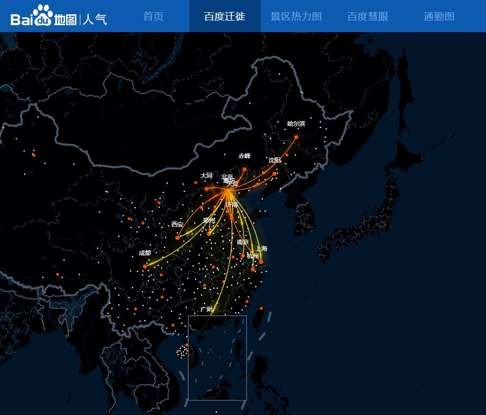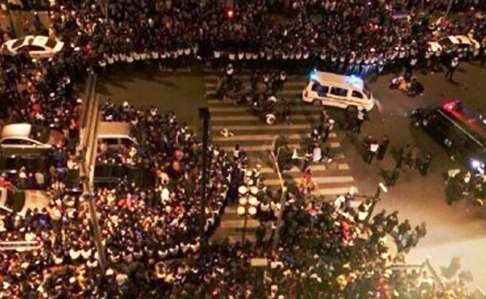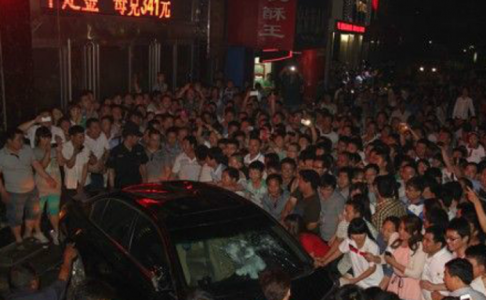
Chinese search engine giant Baidu develops AI algorithm to predict crowds, pre-empt stampedes
Nation still haunted by chaotic scenes by the Bund in Shanghai on December 31, 2014 when 36 people were killed and 49 injured in the crush

Researchers in China have developed a machine-learning algorithm that predicts whether crowds are likely to form at certain locations, a tool that could aid authorities in executing better crowd control and possibly be used to prevent stampedes, according to Baidu’s big data lab.
Baidu’s map app accounts for over 70 per cent of China’s mapping services market and boasts about 300 million active users each month, Baidu’s user statistics show. As such, many Chinese users often search for an ideal travel route using Baidu Maps.
Researchers at the Chinese search engine giant claim to have found a pattern that correlates positively by studying the number of map queries and the number of users in an area.
They then devised a way to crunch the numbers in real time and trigger warnings one to three hours ahead of time if unusually large crowds are expected to gather based on their data. This occurs when the number of queries for a specific location crosses a set threshold.
They published their findings in an academic paper earlier this week.
Machine learning is applied so that the algorithm can learn from search queries and better predict future crowds. This should help officials and organisers of event in China better prepare to handle the flow of human traffic at outdoor celebrations, the company said.
Wu Haishan, one of the authors of the study and a data scientist at Baidu, was quoted as saying that the algorithm could be used by local governments, authorities and even venue operators to monitor crowds.
A Baidu spokesperson confirmed with the South China Morning Post that the algorithm is “not for commercial use” and is only academic at this point, although the company may be open to “other opportunities in the future”.
Baidu may eventually provide the function as a public service feature on Baidu Maps, according to the spokesperson. If implemented, the feature would allow users to see what the crowds are like in various locations using the app.
Baidu already aggregates data from its maps services to show the most popular travel routes within China. It even has a feature on its desktop site that lets users check if tourist attractions are crowded.
The research by its big data team was sparked by the Shanghai stampede on New Year’s Eve in December 2014, where 36 people were killed and another 49 injured during celebrations on the Bund riverfront.
Reasons for the disaster include an inaccurate estimation of human flow and density, as well as poor crowd control measures.

